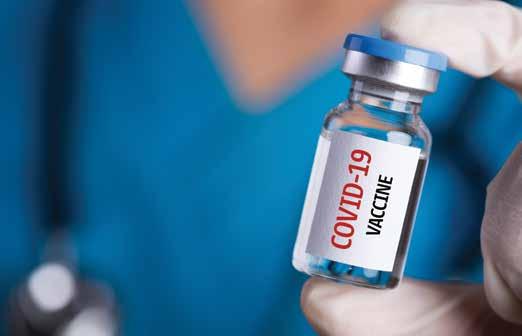
2 minute read
News—A brief overview of COVID vaccines
Ooi Eng Eong attends Wesley Methodist Church. He is a Professor of Emerging Infectious Diseases at Duke–NUS Medical School.
A brief overview of COVID-19 RNA vaccines:
for beginners
Vaccines are, without doubt, one of the most powerful tools available for disease prevention. It was through vaccines that the world eradicated smallpox and is now at the brink of eliminating polio— some of us have even lived through periods where these diseases were dreaded.
It is thus not surprising that, during the COVID-19 pandemic, many longed for a vaccine for the virus. Through unprecedented partnerships in science, several vaccines have now been licensed for use, with two available in Singapore at press time.
Despite, or perhaps because of, this record-breaking feat in speeding vaccines from concept to application, some are perhaps worried if these new COVID-19 vaccines are safe. Here are some answers to common questions.
What is a RNA vaccine? Is it safe?
Ribonucleic acid (RNA) is a form of genetic material. All of us have RNA in our bodies. Although our genetic code is stored in the form of deoxyribonucleic acid (DNA), an activated gene would be read and copied in the form of RNA. Think of DNA in the nucleus of a cell as a reference books in a library—these books cannot be removed from the library. The information within these books (DNA) would thus have to be copied (RNA) in order to be brought out of the library to instruct cellular functions. RNA as a molecule is thus not foreign to our bodies. COVID-19 RNA vaccines contain the genetic code for the spike protein of SARS-CoV-2, the virus that causes COVID-19. The spike protein is the virus’ key to enter our cells. Training our immune system to recognise this key would enable the immune system to block infection and get rid of infected cells swiftly, so as to prevent any illness despite infection.
Although RNA vaccines have not been licensed for use in humans previously, they have under development for at least 20 years. Clinical trials on the COVID-19 RNA vaccines have all shown excellent safety profiles.

Will RNA vaccine change our DNA?
No. Just as it is hard to insert and bind a photocopy of a page back into a reference book, conversion of RNA back into DNA and then integrating that piece of DNA into our chromosomes require very special enzymes that are not present on RNA vaccines.
Is the vaccine safe when it is being developed so quickly?
All the studies that need to be done to ensure the safety of these vaccines have been carried out. No shortcut has been taken.
The clinical development of many COVID-19 vaccines were sped up through parallel processing. Conventionally, vaccine (and drug) development conduct studies and trials one after another, i.e. in series. Serial processing reduces the financial risk of companies as, if the results of any of these studies are not up to expectation, companies can terminate the project and cut their losses. Due to the major public health need, many of the vaccine development efforts have taken on the financial risks and conducted clinical development studies in parallel, wherever possible, rather than in series.










